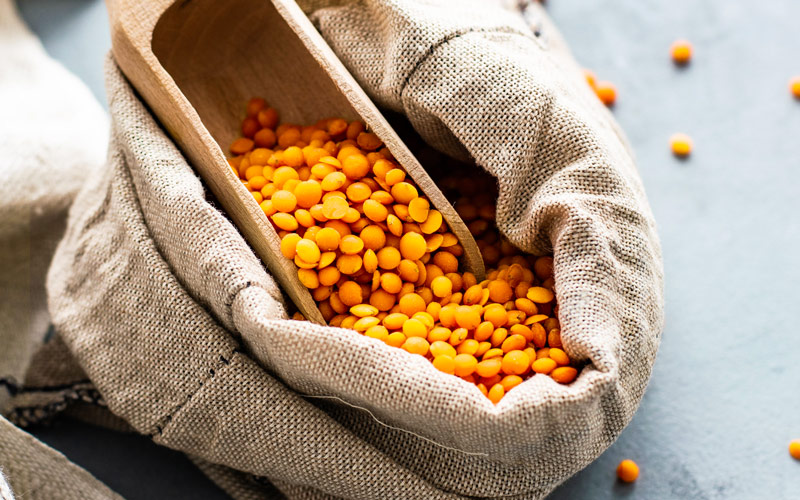Imagine… Food Glorious Food

The UK has a fine food system comprising advanced farming, given our modest agricultural land base. It also has leading-edge, mass-market food manufacturing, amongst the most innovative grocery retailers on the planet, and a food & beverage “F&B” channel that has shaken off the country’s once backward and pariah culinary status.
The industry is always dynamic, always advancing and always facing challenges and opportunities. It has been an immense guardian of our landscape, fed our nation (albeit there is much to improve on both counts), employed hundreds of thousands of people and generated billions of pounds of taxes for the Exchequer.
The sector’s relevance has never been greater, an assertion reflected in Henry Dimbleby’s commission of the National Food Strategy for England, although there was much that was shallow and flawed in his analysis. But big issues remain that require attention in future years. We need to:
Such demands require a fit for purpose industry in all of its components.
In the main, the entrepreneurs of the UK food system have a good grasp of how to take the industry forward. But they cannot and do not operate in vacuum; the industry needs an effective administrative, political and regulatory structure to help it on its way. In this respect it is difficult to be so complementary and optimistic. Too often it is the case that the industry progresses despite the workings of the state.
Indeed, it is hard to think of anyone who is sane that could commit to supporting the present valueless creature that is Prime Minister, Boris Johnson. Those that do in the Conservative Government are only thinking of themselves, not their country, and woe betide them should the electorate gain a chance to wield their power in an election. Rarely has such a Prime Minister let his country down so. Soviet kleptocrats, Central American narcotic states and sub-Saharan African dictators must look at the UK today and smile. It is truly embarrassing.
Johnson is the figurehead for a broken system. A British establishment that the electorate saw through at the time of the UK-EU Referendum and again in the 2019 General Election – a Westminster/Whitehall that is simply self-serving. Johnson promised to be a force for necessary change and yet he is just a puppet of the Establishment. Whilst a buffoon too, albeit putting Bishop Auckland on the map, Dominic Cummings was wholly correct to mistrust and challenge the Civil Service. If the Prime Minister is the leader of the rotten borough of Downing Street, the special advisors and senior civil servants are joined at the hip. It really is a depressing state of affairs; it is not fit for purpose and it will not change.
And yet it could be so different. In putting the EU-UK matter behind us, the country has the opportunity to be progressive and agile in its food system. It could fund, prioritise and encourage leading edge innovation, including genetics that has moved on from simple scaremongering stuff. Outside the EU it might develop a progressive agricultural policy that looks after animals and the environment, produces nutritious food – but does not allow our producers to be undercut by lower standards elsewhere.
The Government could seriously consider the skills needs of the industry, wake up to the poor work ethos of many British “workers” and appropriately permit gaps to be filled by those that do wish to work and earn money from their labours – even if they are foreigners.
It could take components of the National Food Policy around education and seek to change the way the next generations understand and engage with food, delivering better nutrition outcomes and perhaps closer contacts between kitchen and field. There is also a strong claim for decent school meals for all children, rich and poor, and the good that could come from a joined up approach on this key front; something forever talked about but never followed through.
The Government could also commit to developing and applying agri-tech to help the UK become more self-sufficient in foodstuffs in a more welfare friendly and sustainable manner; from vertical farming, plant and animal genetics, and advanced manufacturing. Such innovation could be the basis to both reduce our vast imports (40% at the last count) and help to export knowledge and ideas.
The work to do is extensive. The above list – not exhaustive. However, our Government could enable and support a key industry so that confidence builds, capital becomes committed, and wealth is generated and re-invested. Not just for the purpose of making money, but for massive social good.
And yet we have a Prime Minister consumed with his own lies, a Cabinet paralysed by self-interest, a Civil Service built on privilege not capability, and a media that is laden with transparent agenda. We have rottenness that represents such a missed opportunity for the country and no more so than its vast and glorious food system.
It has been said that the darkest hour is just before the dawn. Let us hope that this is true. And that better politics, governance and administration can yet enable the Great British food system to prosper under its own steam.
Within this frustrating context, Coriolis is a force for good. It is a thinker. It is experienced. It is hands on. And it makes a difference on the ground with beneficial change. If you wish to find out how, give Mark Dudley a call.
Dr Clive Black
Senior Advisor to Coriolis Consulting
February 2022








